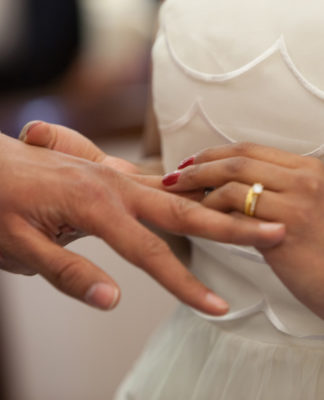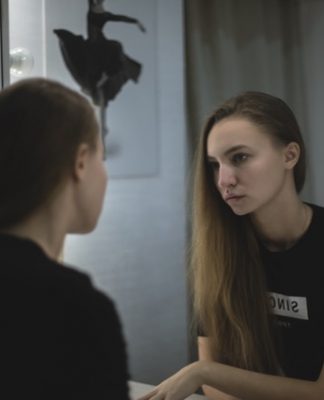My husband and I work with many couples where one or both partners have ADHD. They often come to us when they are struggling with a marriage that is both frustrating and painful. Both feel unheard and misunderstood. They have tried everything in their power to make it better, but they are losing the battle.
Some of the common complaints we hear are, “Why can’t he just do “this?”, “Why does she always do “that?” And, the “this’s” and “that’s” change dependent on the particular couple, but underneath these questions, what they are really asking is, “Why can’t she or he be more like me?”
It’s not that the Non-ADHD partner expects there to be no differences. However, because they don’t usually recognize the full range of potential symptoms, they often expect their ADHD partner to get in line, and behave more like them. This is a set-up for disappointment and failure. Thus, they need our help.
There are often so many differences between these two people that sometimes it can seem like they come from different planets. We worked with one Non-ADHD partner, (the wife), who would describe her husband as “going off in his spaceship” whenever he became overwhelmed and flooded. She blamed him for everything that was wrong in their marriage. She could not see her part in asking things of him that he found challenging to accomplish, given his very full ADHD brain. It was very difficult for her to appreciate that he could go into amygdala overload, and become paralyzed to the point where he would just shut down and need to extricate himself from the situation. This made his ability to communicate anything substantial, at these times, impossible.
The above scenario can happen in one form or another in so many of these marriages. The expectation of the Non-ADHD partner is for their ADHD partner to react “normally,” not recognizing that what is “normal” to them is not possible for their ADHD partner.
We had another couple where the Non-ADHD wife would get very frustrated with her ADHD husband because a project that would take her a couple of hours to complete could take him days. And sometimes it still wouldn’t get finished in the way she was hoping it would. She didn’t realize that there were so many distractions that he didn’t have control over. This inability to stay focused on the task for any length of time made it very difficult to get the job done. In this case, the wife demonstrated a certain level of compassion for her ADHD husband, but even then, she would get upset and very frustrated.
These are only a couple of examples of how the differences play out in these marriages. So you might ask, “What can be done for these couples?” “What do I do if it happens in my marriage?” Very good questions. The first thing is to acknowledge that these partners are very different from each other. Their brains work in very different ways. Ned Hallowell, ADHD expert, has talked about the ADHD brain as like having a race car engine with bicycle brakes. The likelihood is that the ADHD partners are doing the best they can, and they themselves would really like it to be different. But it’s important for the Non-ADHD partner to know that trying to change their ADHD partner into someone just like them is never going to work. It is important to learn to appreciate the differences.
The second thing, which is more challenging, is for the Non-ADHD partner to do their best to have patience and compassion for their ADHD spouse. To know that they are not trying to mess up on purpose.
Medication, exercise, and eating right can lessen the symptoms of ADHD. But, as the saying goes, “pills don’t teach skills.” And, therefore, the likelihood is that further intervention is needed.
One very good tool is Cognitive Behavioral Therapy (CBT). If used by a competent therapist, CBT can be very helpful in getting the ADHD partner to develop better habits, if they work at it. Getting a coach who has expertise in ADHD can also be supportive. Coaches often have ADHD themselves, and can really relate to the ADHD partner. Often the coach has developed work-arounds to help them cope more effectively in life, and these can be shared with their clients.
Therefore, there is hope, if you are one of these couples. The important thing is to remember that your brains work very differently, and so continuous education, patience, and understanding are some of the keys to making it work. And sticking with each other through the challenging times is a worthy goal.


 Nancie Kohlenberger is both a Licensed Marriage and Family Therapist in Southern California, and a Marriage Consultant nationally and internationally. She has been in private practice for 17 years, and in recent years has specialized in supporting couples whose relationships are challenged when one or both has ADHD.
Nancie was on faculty at the University of Santa Monica where she taught Master’s level courses in Counseling Psychology and in addition, supported Master’s level students in Spiritual Psychology. Prior to this, she too completed both Master’s level degrees at the University of Santa Monica. She also holds a Master’s degree in Education from Kent State University in Ohio. Nancie co-authored the book, The Couple’s Guide to Thriving with ADHD with Melissa Orlov. She has spoken for CHADD (Children and Adults with ADD), and been interviewed by a number of radio programs, and TotallyADD out of Canada. She has written articles for a variety of publications including the PsychCentral website. Nancie’s website is BeyondADHD4Us.com.
Nancie Kohlenberger is both a Licensed Marriage and Family Therapist in Southern California, and a Marriage Consultant nationally and internationally. She has been in private practice for 17 years, and in recent years has specialized in supporting couples whose relationships are challenged when one or both has ADHD.
Nancie was on faculty at the University of Santa Monica where she taught Master’s level courses in Counseling Psychology and in addition, supported Master’s level students in Spiritual Psychology. Prior to this, she too completed both Master’s level degrees at the University of Santa Monica. She also holds a Master’s degree in Education from Kent State University in Ohio. Nancie co-authored the book, The Couple’s Guide to Thriving with ADHD with Melissa Orlov. She has spoken for CHADD (Children and Adults with ADD), and been interviewed by a number of radio programs, and TotallyADD out of Canada. She has written articles for a variety of publications including the PsychCentral website. Nancie’s website is BeyondADHD4Us.com.

















